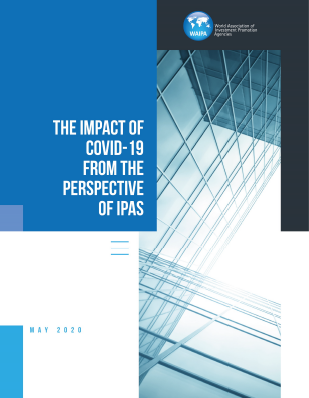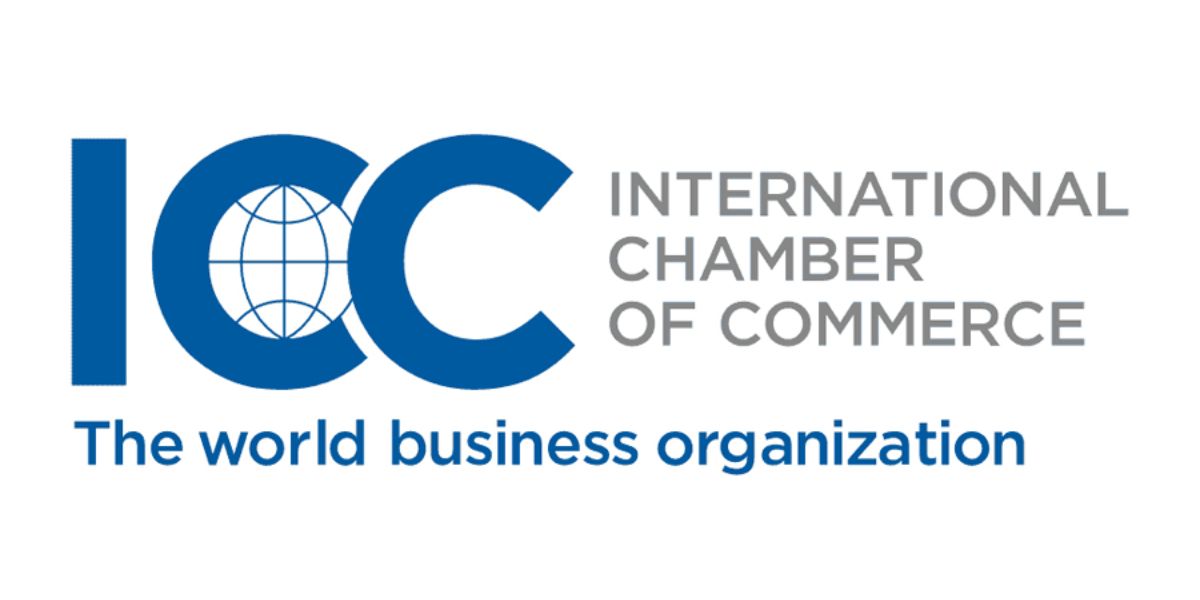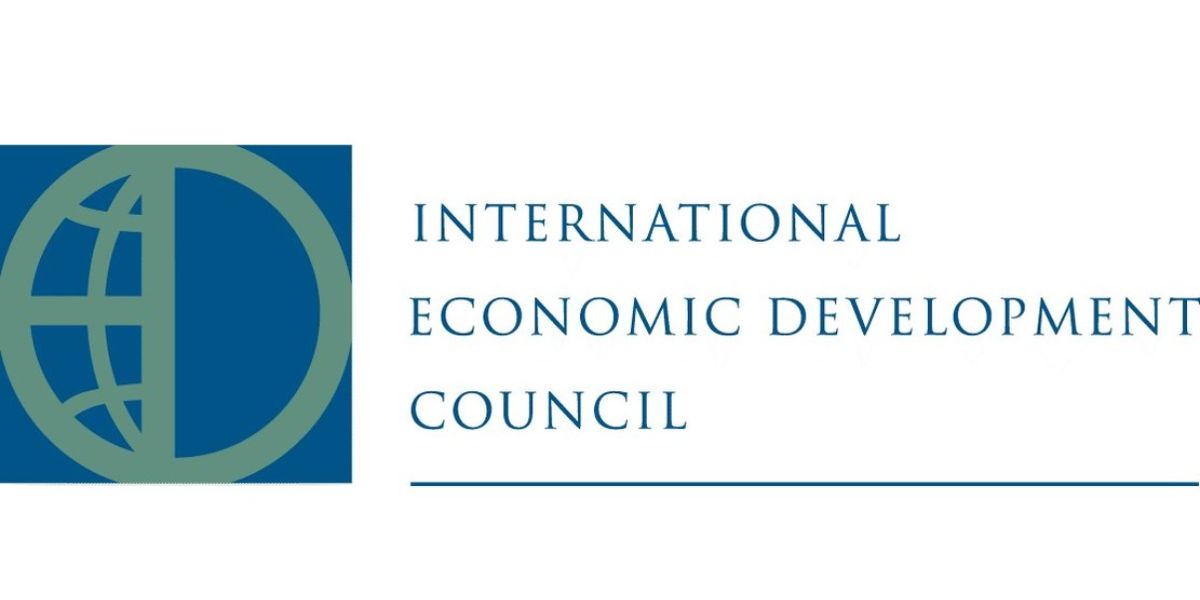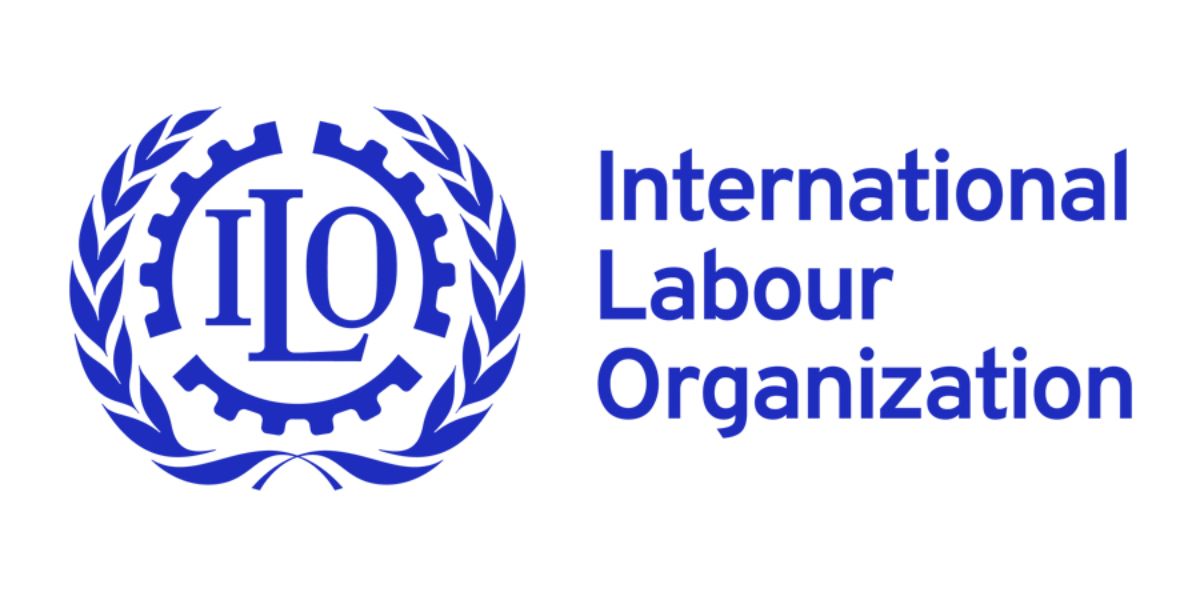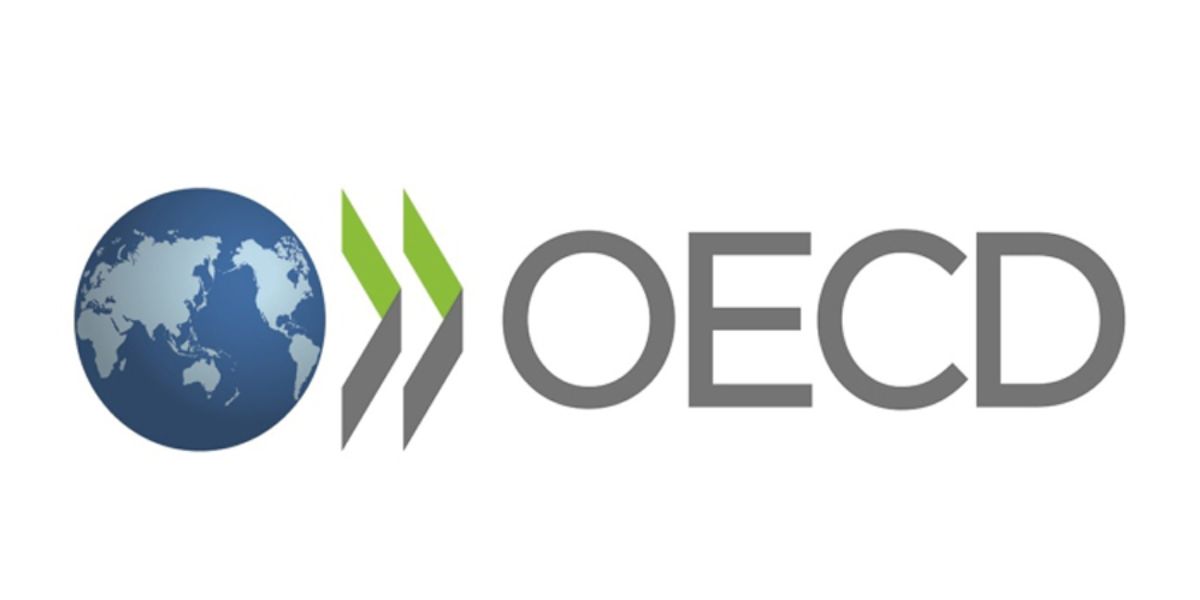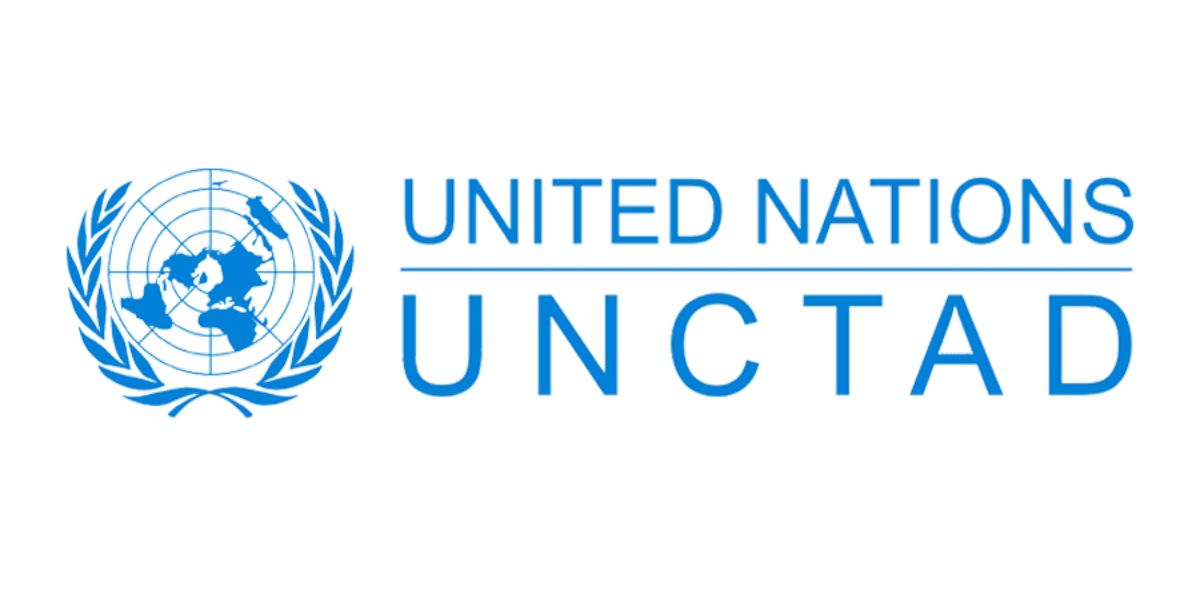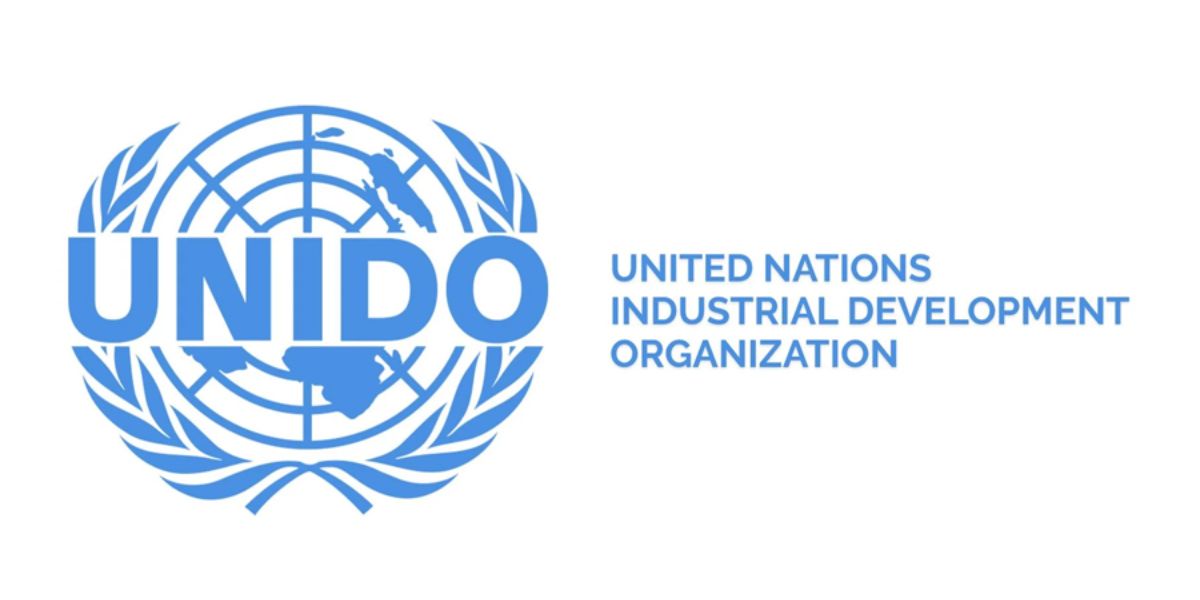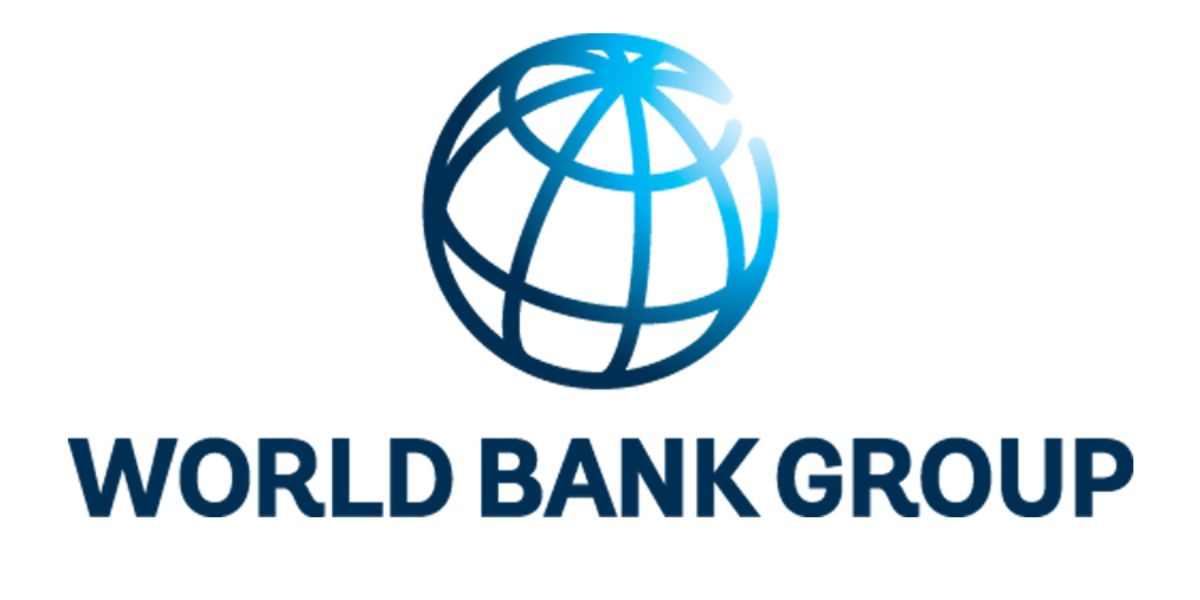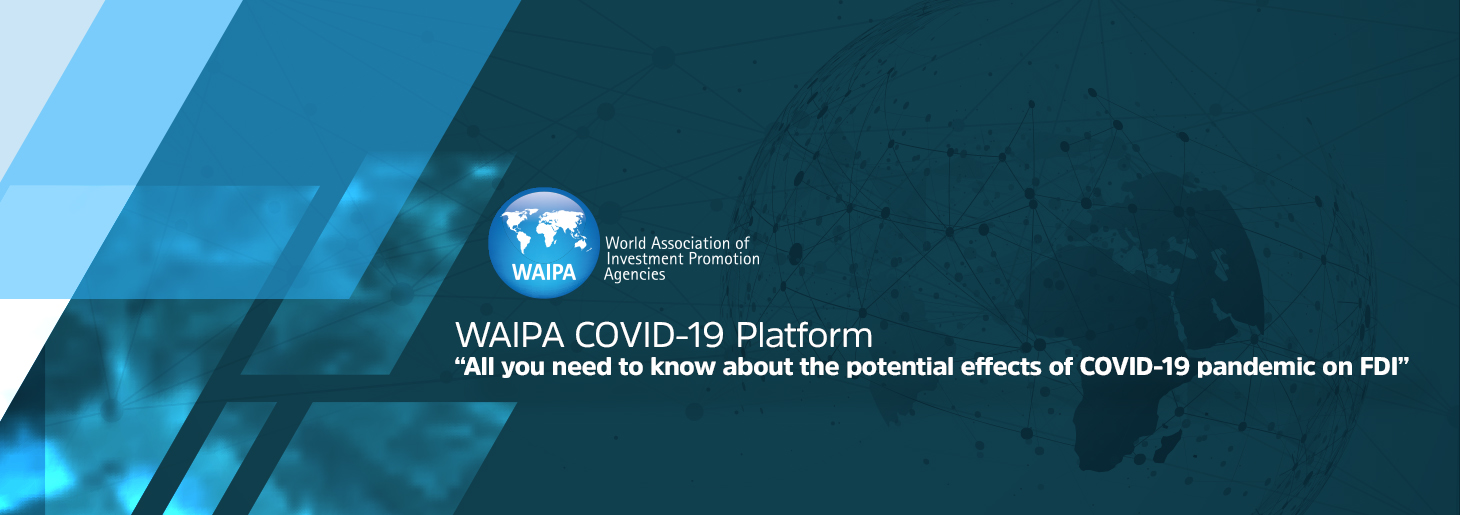
Currently, the spread of coronavirus (COVID-19) is the main concern across the globe. It shaped the way we perform our everyday activities and caused major disruptions in global economy, flows of investment, global value chains (GVCs), and many more. Putting the pandemic under the control requires effective action by governments, individuals and businesses. This page is providing all major resources regarding the COVID-19 that can help Investment Promotion Agencies (IPAs) to cope with the pandemic.
Note: As information on the COVID-19 are changing daily, there is possibility that some information on this page are not up to date. We are doing everything in our power to keep all information updated.
What is COVID-19?
Coronavirus disease (COVID-19) is an infectious respiratory disease caused by a newly discovered coronavirus. Most infected people will develop mild to moderate symptoms and recover without requiring special treatment. People who have underlying medical conditions and those over 60 years old have a higher risk of developing severe disease and death.
How to protect yourself?
To prevent infection and to slow transmission of COVID-19, do the following:
- Wash your hands regularly with soap and water or clean them with alcohol-based hand rub.
- Maintain at least 1 meter distance between you and people coughing or sneezing.
- Avoid touching your face.
- Cover your mouth and nose when coughing or sneezing.
- Stay home if you feel unwell.
- Refrain from smoking and other activities that weaken the lungs.
- Practice physical distancing by avoiding unnecessary travel and staying away from large groups of people.
Other Resources
COVID-19 Live Dashboard
Source: Johns Hopkins Center for Systems Science and Engineering
Other Resources
COVID-19 Impact
The COVID-19 pandemic is a challenge for the world economy. The strict measures by governments worldwide to suppress the further spreading of the virus also mean an unprecedented disruption on the global economy.
According to the OECD Interim Economic Assessment published on March 2, 2020, growth prospects remain highly uncertain due to the COVID-19 outbreak. Annual global GDP growth is projected to drop to 2.4 percent in 2020 comparing to an already weak 2.9 percent in 2019. This means that whole world economy could go into recession as global annual growth to below 2.5 percent is often taken as the recessionary threshold for the world economy. Global economy is at risk due to the supply and demand shocks resulted form the virus outbreak. It has decreased global production, disrupted GVCs, and drawback investors from investing.
In a recently published analysis UNCTAD revised their projections on the potential impact of the COVID-19 pandemic on FDI and GVCs. The newest update predicts:
- The downward pressure on global FDI estimated to be -30% to -40% leading up to 2021.
- The downward revisions of 2020 earnings of the top 5000 multinational enterprises (MNEs) with significant share of global FDI is estimated to be -30% on average .
- The most affected industries are energy, basic materials, airlines, automotive, and hotels and restaurants.
- Announcements of new greenfield projects are likely to be delayed.
- New M&A announcements on course estimated to drop by -70% globally in Q1.
For more information on UNCTAD’s analysis click HERE.
Furthermore, the duration and depth of the crisis will depend on several variables. The first one, is how far and fast the virus spreads. It is very important that policymakers bring measures that will slow the rate of new infections and ensure “flattening the curve”. In this way, health systems of countries would be able to adequately respond to the pandemic and prevent more deaths. The second variable is how long it will take before a vaccine for the COVID-19 is found, and the third one is how effective policy makers will be in mitigating COVID-19 impact on our well-being. The overview of key economic policy measures brought by countries worldwide can be found on the IMF Policy Tracker Platform. When it comes to FDI related policy measures, UNCTAD’s new Investment Policy Monitor reports that almost half of the countries brought new measures to facilitate and promote investments. More information can be found HERE.
Other Resources
What IPAs Can Do?
Inevitably, disruptions caused by COVID-19 will also profoundly impact IPAs’ current and future activities. In the short term, IPAs need to act swiftly and proactively to alleviate the overall impact of COVID-19 on their economies by working closely with their respective governments. At the same time, they need to look forward and prepare for the post COVID-19 period. Below is the list of actions, which is based on the WAIPA’s publication “The impact of COVID-19 from the perspective of IPAs”, that IPAs might take to suppress the impact of the pandemic and to prepare for the post outbreak period.
Protect your organization
In order for IPAs to be able to continue their work effectively and efficiently, they need first to protect their employees from the virus. Our Consultative Committee member, International Chamber of Commerce (ICC) partnered with the New England Complex Systems to prepare comprehensive guide for organizations/businesses of how to protect themselves from COVID-19. The most important measures that IPAs can apply are listed below:
- Promote understanding among employees and their families of coronavirus transmission and prevention by directing them to the WHO and national health authority websites.
- Keep a clear log of each day’s contacts. If an infection is identified, the business can alert all possibly exposed to minimize risk and mitigate harm to employees and customers.
- Ensure employees know that when they have even mild symptoms they should not be at work locations or in-person meetings and they will not be penalized for sick days.
- Ensure employees have appropriate health insurance policies so that they will not be afraid to seek out care when they have symptoms, even mild ones.
- Replace in-person meetings with virtual.
- Arrange for employees to work from home where possible.
- Disinfect public areas, locales with heavy traffic and surfaces frequently touched.
The full guideline can be found HERE.
Support your government
The first and most important step for all countries worldwide is to suppress spread of COVID-19 and ensure “flattening the curve”. Due to their close relationship with their respective governments and profound knowledge of local businesses and markets, IPAs can help during this process by:
- Helping government to bring measures to cope with the COVID-19 outbreak and its impact.
- Providing necessary assistance to the producers and suppliers of medical equipment essential for coping with COVID-19.
- Helping public health sector in finding additional workforce.
Aftercare and policy advocacy
Aftercare and policy advocacy are one of the most important roles of IPAs, especially during the current pandemic. Main goal of aftercare is to ensure project implementation and future re-investments by providing post-investment services. Subsequently, policy advocacy can complement aftercare by identifying the main obstacles investors are facing and advocating for their removal. IPAs can do the following to support their existing clients:
- Provide comprehensive information via email and/or website on a new COVID-19 related measures enacted by their governments.
- Provide e-guidelines to businesses on public health measures to take during the pandemic.
- Assist businesses in understanding and applying new measures.
- Assist businesses in accessing public support funds.
- Assist businesses in maintaining supply chains.
- Harness the potential of new technologies to improve their efficiency, e.g. e-meeting, webinars, chatbots, etc.
- Systematically contact clients and gather information regarding the issues they are facing; and work with government to adequately address those issues.
- Advocate for more tailored incentives as needed.
Prepare for future
Every crisis will eventually end, yet the outbreak of COVID-19 will inevitably leave a profound impact on our world and may trigger shifts in regards to political and economic power. Given the major disruption and vulnerability of the GVCs, reshoring and nearshoring might become a major practice in the years to come. IPAs need to look forward and prepare for the post COVID-19 period. This includes:
- Rethinking investment promotion strategy and channels to be used for promotion.
- Rethinking the organizational structure of the agency and its budget allocation.
- Re-prioritization of target sectors.
- Harvesting innovation/startups.
- Strengthening connections with the local eco-system, local SMEs and existing investors.
- Implementing cost-efficient targeted image-building campaigns.
- Digital transformation or strengthening of existing digital investment promotion practices, e.g. upgrading website, embracing digital marketing and data analytics, e-registration of businesses, etc.
Other Resources
- The IPA Observer by UNCTAD: IPAs Striving to Overcome the COVID-19 Challenge
- The Initial Response of IPAs to COVID-19 and Some Observed Effects on FDI, World Bank Group
- Investment promotion agencies in the time of COVID-19, OECD
Responses of IPAs to COVID-19
The impact of COVID-19 from the perspective of IPAs
This paper was prepared by the World Association of Investment Promotion Agencies (WAIPA) from survey data collected in the first week of April and benefited from peer review. As such it gives a glimpse of the initial action taken by investment promotion agencies (IPAs) towards the COVID-19 pandemic. The aim of this survey was to understand the impact and initial challenges IPAs face due to this crisis and to examine actions by IPAs to mitigate and alleviate these shocks. By highlighting some of these measures, this paper aims to help IPAs to compare their own actions to those of their peers but also to serve as food for thought for IPAs to expand or align their services accordingly, and to provide recommendations based on the experience of WAIPA and its partners.
WAIPA COVID-19 Interviews
Due to COVID-19 IPAs found themselves in challenging situations. To see how practitioners all over the world tackle the crisis we are conducting a series experience sharing interviews, which are listed below. Stay tuned for more!
Yofi Grant, CEO of the Ghana Investment Promotion Centre (GIPC)
Pilar Madrigal, Director, Investment Advisory, CINDE
Taliya Minullina, Head of Tatarstan Investment Development Agency (TIDA)
Shawn Chang, Head, Invest KOREA
Deepak Bagla, MD & CEO, Invest India and VP of WAIPA
Beligh Ben Soltane, Chairman, Tunisia Investment Authority (TIA)
Roderick Cherry, CEO, Invest Saint Lucia
Sergio Segovia, President, Apex-Brasil
Namory Camara, Managing Director, APIP-Guinée
Mr. XUE Feng, President, Invest Shanghai
Dr. Ismail Erkam Tuzgen, Secretary General, ISTKA
IsDB-WBG-WAIPA Webinar | “The GICR 2019-2020: Rebuilding investor confidence in times of uncertainty”
On 29 October 2020, WAIPA in partnership with Islamic Development Bank (IsDB) and the World Bank Group (WBG) organized webinar on “The Global Investment Competitiveness Report 2019-2020”, which explored how to rebuild investor confidence in times of uncertainty.
After introductory keynotes by Syed Husain Quadri, Acting Director of Country Strategy and Cooperation Department, IsDB and Bostjan Skalar, Executive Director, WAIPA, Peter Kusek, Senior Economist and Armando Heilbron, Investment Promotion Workstream Leader from the World Bank delivered a presentation on the findings of the GICR 2019/2020.
Under the moderation of Ismail Ersahin, Deputy Executive Director, WAIPA this webinar aimed to discuss investment promotion strategies beyond the COVID-19 global crisis, the crucial role of IPAs, and underlined the critical time for FDI and for IPAs as countries may have to seek creative ways to expand and sustain investment where possible.
WAIPA Webinar | “IPAs’ Role in a post-COVID-19 world: How an integrative approach can create a more resilient and sustainable investment ecosystem”
On 21 July 2020, WAIPA organized webinar titled “IPAs’ Role in a Post-COVID-19 World: How an Integrative Approach Can Create a More Resilient and Sustainable Investment Ecosystem”. This webinar aimed at providing global economic stakeholders with valuable insights shared during the moderated discussion between four participating investment promotion agencies (IPAs). The speakers shared their recommendations on how IPAs and other relevant business organizations can manage the after-effects of the pandemic, and actively contribute to a global investment ecosystem that is more resilient and sustainable.
Panelists:
- Sheikh Ali Alwaleed Al-Thani, CEO, IPA Qatar
- Marie-Cecile Tardieu, Deputy CEO and Head of Investment Promotion, Business France
- Ahmad Khairuddin Abdul Rahim, Deputy CEO, Malaysian Investment Development Authority (MIDA)
- Bekir Polat, Head of Communications, Investment Office of the Presidency of Turkey
The webinar was moderated by Bostjan Skalar, CEO, WAIPA.
EIF and WAIPA Webinar | “COVID-19 implications on global value chains and investment opportunities for the LDCs”
On 15 July 2020, WAIPA in partnership with EIF organized webinar titled “COVID-19 implications on global value chains and investment opportunities for the LDCs”, which brought investment and trade experts together with the EIF National Implementation Units and Investment Promotion Agencies of the LDCs to discuss the current situation, challenges and opportunities caused by COVID-19 on global value chains and investment. The Webinar also aimed to strengthen partnership and collaboration to effectively support the LDCs in investment promotion.
Panelists:
- Bostjan Skalar, CEO, WAIPA
- Dorothy Tembo, Executive Director a.i., International Trade Centre
- Moussa Ismaila Touré, Managing Director of the Investment Promotion Agency of Mali
- Ratnakar Adhikari, Executive Director, Executive Secretariat for the EIF
- Sandra D’Amico, Managing Director of HRINC (Myanmar) Co., Ltd.
- Samheng Bora, Under Secretary of State , Ministry of Commerce, Cambodia
The webinar was moderated by Carlos Griffin, Senior Investment Promotion Consultant.
EIF-WAIPA Webinar (English)
EIF-WAIPA Webinar (French)
WAIPA IBM Webinar | “How is COVID-19 impacting the future of FDI and how should IPAs respond?”
On 22 June 2020, WAIPA in partnership with IBM-PLI organized the webinar titled “How is COVID-19 impacting the future of FDI and how should IPAs respond?” which focused on the impact of current challenges in the market on FDI as well as on how IPAs may need to respond.
Panelists:
• Bostjan Skalar, Executive Director, WAIPA
• Roel Spee, Global Leader Plant Location International, IBM
• Koen Gijpers, Managing Consultant, IBM
• Jacob Dencik, Economic Research Leader, IBM
WAIPA Huawei Webinar | “Optimize investment conditions can accelerate digital economic recovery”
On 19 May 2020 WAIPA and Huawei jointly organized an online panel discussion titled “Optimize investment conditions to accelerate digital recovery”. The discussion gathered panelists from international organizations, investment promotion agencies (IPAs), FDI advisory and the business sector. The focus of the panel was inward investment for recovery, multilateral collaboration, the importance of the WTO “Multilateral Framework on Investment Facilitation for Development” and the significance of IPAs.
Panelists:
• Fahad Al Gergawi, President of WAIPA and CEO of Dubai FDI
• Prerna Soni, Sr AVP, Invest India
• Juan Marchetti, Chief Counsellor on Investment WTO
• Andreas Dressler, Managing Director, FDI Center
• Craig Burchell, VP Global Trade, Huawei
WAIPA President Message
 Dear WAIPA Members,
Dear WAIPA Members,
I hope that you, your families and your colleagues are safe and well.
Today, the newly elected WAIPA Steering Committee members will convene, virtually, to review where we are today and create a path forward to deliver on WAIPA’s promise to serve IPAs and advocate your role, influence and positive impact on our communities, cities and nations. A promise that I have been committed to, over the years to transform our cooperation to a lasting and meaningful partnerships.
Our meeting is being held during an unprecedented crisis, presenting challenges for people, businesses and governments worldwide. We are all attempting to adjust to new realities and constraints on how we remain safe, work and collaborate. I am not going to restate what you already know, so allow me to get right to the topic at hand, as economic developers, how are we going to keep moving forward?
First: The Coronavirus threat is the reality of the moment
While the news is bad, and no one could have prepared for or understood fully the impact of a public health crisis of that magnitude and none of us know how long this crisis will last, it is clear that the worst scenarios can be successfully mitigated, if we stop the spread.
Likewise, the expected drop on global FDI flows this year is not inevitable. If IPAs adapt and carry on with focus on the unique value created through FDI projects, we will come out on the other end in a stronger position. Many IPAs have started to engage in meaningful ways with investors, to provide the support, guidance and clarity needed to restore Investors’ confidence.
Second: The world is united. Finally.
The world is a competitive place and we know that IPAs compete to benefit their immediate communities, but the current crisis proves that we can’t remain competitive while our shared future is at stake. Today the world is united in gratitude and deep appreciation to health workers and other unsung heroes who truly make a difference in keeping us safe and well. IPAs must be united as well in celebrating the contributions of businesses big and small who made our life possible in these challenging times.
Let’s be united in supporting businesses that deliver on the promise of a sustainable and prosperous future for all. Let the personal tragedy for those who have lost loved ones, guide our work moving forward to help accelerate and facilitate new partnerships, policies and incentives to accelerate FDI flows into the healthcare sector worldwide for the benefit of humanity.
Third: This is WAIPA’s finest hour
The current global crisis marks the start of a decade with a call for action for all IPAs. We can make our response to this crisis our finest hour. Let’s make 2020 the year that WAIPA sets an example for global collaboration by coming together to:
- Set a new agenda for the Future of FDI
- Strengthen and expand WAIPA’s, services, institutional role and global standing for the benefit of WAIPA Members
- Foster regional and global partnerships to facilitate FDI flows into SDGs-oriented projects
I take this opportunity to reiterate our long-standing commitment to develop and fund programs to strengthen WAIPA’s members’ capacity through the “IPAs Capacity 2030” program in partnership with Hamdan Centre for the Future of Investment (HCFI). With focus on building the professional, institutional and market capacity needed to realize an opportunity of over US$ 15 trillion in Impact FDI into SDGs related projects by 2030.
Meanwhile, I look forward to work with my colleagues, members of the Steering Committee, to develop a new WAIPA strategy and a roadmap to guide the future of WAIPA’s services, partnerships and governance. I also take this opportunity to thank WAIPA’s Permanent Secretariat team for their unwavering commitment to WAIPA’s success over the years and wish them all the best in, facilitating discussions and consultations with WAIPA members and stakeholders, to support the Steering Committee’s efforts as we all work together to forge a new path forward.
Stay safe and take care of yourself and your family. We’ll get through this together.
Fahad Al Gergawi,
President, WAIPA Steering Committee
CEO, Dubai FDI
Coronavirus disease (COVID-19) is an infectious respiratory disease caused by a newly discovered coronavirus. Most infected people will develop mild to moderate symptoms and recover without requiring special treatment. People who have underlying medical conditions and those over 60 years old have a higher risk of developing severe disease and death.
How to protect yourself?
To prevent infection and to slow transmission of COVID-19, do the following:
- Wash your hands regularly with soap and water or clean them with alcohol-based hand rub.
- Maintain at least 1 meter distance between you and people coughing or sneezing.
- Avoid touching your face.
- Cover your mouth and nose when coughing or sneezing.
- Stay home if you feel unwell.
- Refrain from smoking and other activities that weaken the lungs.
- Practice physical distancing by avoiding unnecessary travel and staying away from large groups of people.
Other Resources
COVID-19 Live Dashboard
Source: Johns Hopkins Center for Systems Science and Engineering
Other Resources
The COVID-19 pandemic is a challenge for the world economy. The strict measures by governments worldwide to suppress the further spreading of the virus also mean an unprecedented disruption on the global economy.
According to the OECD Interim Economic Assessment published on March 2, 2020, growth prospects remain highly uncertain due to the COVID-19 outbreak. Annual global GDP growth is projected to drop to 2.4 percent in 2020 comparing to an already weak 2.9 percent in 2019. This means that whole world economy could go into recession as global annual growth to below 2.5 percent is often taken as the recessionary threshold for the world economy. Global economy is at risk due to the supply and demand shocks resulted form the virus outbreak. It has decreased global production, disrupted GVCs, and drawback investors from investing.
In a recently published analysis UNCTAD revised their projections on the potential impact of the COVID-19 pandemic on FDI and GVCs. The newest update predicts:
- The downward pressure on global FDI estimated to be -30% to -40% leading up to 2021.
- The downward revisions of 2020 earnings of the top 5000 multinational enterprises (MNEs) with significant share of global FDI is estimated to be -30% on average.
- The most affected industries are energy, basic materials, airlines, automotive, and hotels and restaurants.
- Announcements of new greenfield projects are likely to be delayed.
- New M&A announcements on course estimated to drop by -70% globally in Q1.
For more information on UNCTAD’s analysis click HERE.
Furthermore, the duration and depth of the crisis will depend on several variables. The first one, is how far and fast the virus spreads. It is very important that policymakers bring measures that will slow the rate of new infections and ensure “flattening the curve”. In this way, health systems of countries would be able to adequately respond to the pandemic and prevent more deaths. The second variable is how long it will take before a vaccine for the COVID-19 is found, and the third one is how effective policy makers will be in mitigating COVID-19 impact on our well-being. The overview of key economic policy measures brought by countries worldwide can be found on the IMF Policy Tracker Platform. When it comes to FDI related policy measures, UNCTAD’s new Investment Policy Monitor reports that almost half of the countries brought new measures to facilitate and promote investments. More information can be found HERE.
Other Resources
Inevitably, disruptions caused by COVID-19 will also profoundly impact IPAs’ current and future activities. In the short term, IPAs need to act swiftly and proactively to alleviate the overall impact of COVID-19 on their economies by working closely with their respective governments. At the same time, they need to look forward and prepare for the post COVID-19 period. Below is the list of actions, which is based on the WAIPA’s publication “The impact of COVID-19 from the perspective of IPAs”, that IPAs might take to suppress the impact of the pandemic and to prepare for the post outbreak period.
Protect your organization
In order for IPAs to be able to continue their work effectively and efficiently, they need first to protect their employees from the virus. Our Consultative Committee member, International Chamber of Commerce (ICC) partnered with the New England Complex Systems to prepare comprehensive guide for organizations/businesses of how to protect themselves from COVID-19. The most important measures that IPAs can apply are listed below:
- Promote understanding among employees and their families of coronavirus transmission and prevention by directing them to the WHO and national health authority websites.
- Keep a clear log of each day’s contacts. If an infection is identified, the business can alert all possibly exposed to minimize risk and mitigate harm to employees and customers.
- Ensure employees know that when they have even mild symptoms they should not be at work locations or in-person meetings and they will not be penalized for sick days.
- Ensure employees have appropriate health insurance policies so that they will not be afraid to seek out care when they have symptoms, even mild ones.
- Replace in-person meetings with virtual.
- Arrange for employees to work from home where possible.
- Disinfect public areas, locales with heavy traffic and surfaces frequently touched.
The full guideline can be found HERE.
Support your government
The first and most important step for all countries worldwide is to suppress spread of COVID-19 and ensure “flattening the curve”. Due to their close relationship with their respective governments and profound knowledge of local businesses and markets, IPAs can help during this process by:
- Helping government to bring measures to cope with the COVID-19 outbreak and its impact.
- Providing necessary assistance to the producers and suppliers of medical equipment essential for coping with COVID-19.
- Helping public health sector in finding additional workforce.
Aftercare and policy advocacy
Aftercare and policy advocacy are one of the most important roles of IPAs, especially during the current pandemic. Main goal of aftercare is to ensure project implementation and future re-investments by providing post-investment services. Subsequently, policy advocacy can complement aftercare by identifying the main obstacles investors are facing and advocating for their removal.
IPAs can do the following to support their existing clients:
- Provide comprehensive information via email and/or website on a new COVID-19 related measures enacted by their governments.
- Provide e-guidelines to businesses on public health measures to take during the pandemic.
- Assist businesses in understanding and applying new measures.
- Assist businesses in accessing public support funds.
- Assist businesses in maintaining supply chains.
- Harness the potential of new technologies to improve their efficiency, e.g. e-meeting, webinars, chatbots, etc.
- Systematically contact clients and gather information regarding the issues they are facing; and work with government to adequately address those issues.
- Advocate for more tailored incentives as needed.
Prepare for future
Every crisis will eventually end, yet the outbreak of COVID-19 will inevitably leave a profound impact on our world and may trigger shifts in regards to political and economic power. Given the major disruption and vulnerability of the GVCs, reshoring and nearshoring might become a major practice in the years to come. IPAs need to look forward and prepare for the post COVID-19 period. This includes:
- Rethinking investment promotion strategy and channels to be used for promotion.
- Rethinking the organizational structure of the agency and its budget allocation.
- Re-prioritization of target sectors.
- Harvesting innovation/startups.
- Strengthening connections with the local eco-system, local SMEs and existing investors.
- Implementing cost-efficient targeted image-building campaigns.
- Digital transformation or strengthening of existing digital investment promotion practices, e.g. upgrading website, embracing digital marketing and data analytics, e-registration of businesses, etc.
Other Resources
- The IPA Observer by UNCTAD: IPAs Striving to Overcome the COVID-19 Challenge
- The Initial Response of IPAs to COVID-19 and Some Observed Effects on FDI, World Bank Group
- Investment promotion agencies in the time of COVID-19, OECD
Responses of IPAs to COVID-19
The impact of COVID-19 from the perspective of IPAs
This paper was prepared by the World Association of Investment Promotion Agencies (WAIPA) from survey data collected in the first week of April and benefited from peer review. As such it gives a glimpse of the initial action taken by investment promotion agencies (IPAs) towards the COVID-19 pandemic. The aim of this survey was to understand the impact and initial challenges IPAs face due to this crisis and to examine actions by IPAs to mitigate and alleviate these shocks. By highlighting some of these measures, this paper aims to help IPAs to compare their own actions to those of their peers but also to serve as food for thought for IPAs to expand or align their services accordingly, and to provide recommendations based on the experience of WAIPA and its partners.
Due to COVID-19 IPAs found themselves in challenging situations. To see how practitioners all over the world tackle the crisis we are conducting a series experience sharing interviews, which are listed below. Stay tuned for more!
Yofi Grant, CEO of the Ghana Investment Promotion Centre (GIPC)
Pilar Madrigal, Director, Investment Advisory, CINDE
Taliya Minullina, Head of Tatarstan Investment Development Agency (TIDA)
Shawn Chang, Head, Invest KOREA
Deepak Bagla, MD & CEO, Invest India and VP of WAIPA
Beligh Ben Soltane, Chairman, Tunisia Investment Authority (TIA)
Roderick Cherry, CEO, Invest Saint Lucia
Sergio Segovia, President, Apex-Brasil
Namory Camara, Managing Director, APIP-Guinée
Mr. XUE Feng, President, Invest Shanghai
Dr. Ismail Erkam Tuzgen, Secretary General, ISTKA
IsDB-WBG-WAIPA Webinar | “The GICR 2019-2020: Rebuilding investor confidence in times of uncertainty”
On 29 October 2020, WAIPA in partnership with Islamic Development Bank (IsDB) and the World Bank Group (WBG) organized webinar on “The Global Investment Competitiveness Report 2019-2020”, which explored how to rebuild investor confidence in times of uncertainty.
After introductory keynotes by Syed Husain Quadri, Acting Director of Country Strategy and Cooperation Department, IsDB and Bostjan Skalar, Executive Director, WAIPA, Peter Kusek, Senior Economist and Armando Heilbron, Investment Promotion Workstream Leader from the World Bank delivered a presentation on the findings of the GICR 2019/2020.
Under the moderation of Ismail Ersahin, Deputy Executive Director, WAIPA this webinar aimed to discuss investment promotion strategies beyond the COVID-19 global crisis, the crucial role of IPAs, and underlined the critical time for FDI and for IPAs as countries may have to seek creative ways to expand and sustain investment where possible.
WAIPA Webinar | “IPAs’ Role in a post-COVID-19 world: How an integrative approach can create a more resilient and sustainable investment ecosystem”
On 21 July 2020, WAIPA organized webinar titled “IPAs’ Role in a Post-COVID-19 World: How an Integrative Approach Can Create a More Resilient and Sustainable Investment Ecosystem”. This webinar aimed at providing global economic stakeholders with valuable insights shared during the moderated discussion between four participating investment promotion agencies (IPAs). The speakers shared their recommendations on how IPAs and other relevant business organizations can manage the after-effects of the pandemic, and actively contribute to a global investment ecosystem that is more resilient and sustainable.
Panelists:
- Sheikh Ali Alwaleed Al-Thani, CEO, IPA Qatar
- Marie-Cecile Tardieu, Deputy CEO and Head of Investment Promotion, Business France
- Ahmad Khairuddin Abdul Rahim, Deputy CEO, Malaysian Investment Development Authority (MIDA)
- Bekir Polat, Head of Communications, Investment Office of the Presidency of Turkey
The webinar was moderated by Bostjan Skalar, CEO, WAIPA.
EIF and WAIPA Webinar | “COVID-19 implications on global value chains and investment opportunities for the LDCs”
On 15 July 2020, WAIPA in partnership with EIF organized webinar titled “COVID-19 implications on global value chains and investment opportunities for the LDCs”, which brought investment and trade experts together with the EIF National Implementation Units and Investment Promotion Agencies of the LDCs to discuss the current situation, challenges and opportunities caused by COVID-19 on global value chains and investment. The Webinar also aimed to strengthen partnership and collaboration to effectively support the LDCs in investment promotion.
Panelists:
- Bostjan Skalar, CEO, WAIPA
- Dorothy Tembo, Executive Director a.i., International Trade Centre
- Moussa Ismaila Touré, Managing Director of the Investment Promotion Agency of Mali
- Ratnakar Adhikari, Executive Director, Executive Secretariat for the EIF
- Sandra D’Amico, Managing Director of HRINC (Myanmar) Co., Ltd.
- Samheng Bora, Under Secretary of State , Ministry of Commerce, Cambodia
The webinar was moderated by Carlos Griffin, Senior Investment Promotion Consultant.
EIF-WAIPA Webinar (English)
EIF-WAIPA Webinar (French)
WAIPA IBM Webinar | “How is COVID-19 impacting the future of FDI and how should IPAs respond?”
On 22 June 2020, WAIPA in partnership with IBM-PLI organized the webinar titled “How is COVID-19 impacting the future of FDI and how should IPAs respond?” which focused on the impact of current challenges in the market on FDI as well as on how IPAs may need to respond.
Panelists:
• Bostjan Skalar, Executive Director, WAIPA
• Roel Spee, Global Leader Plant Location International, IBM
• Koen Gijpers, Managing Consultant, IBM
• Jacob Dencik, Economic Research Leader, IBM
WAIPA Huawei Webinar | “Optimize investment conditions can accelerate digital economic recovery”
On 19 May 2020 WAIPA and Huawei jointly organized an online panel discussion titled “Optimize investment conditions to accelerate digital recovery”. The discussion gathered panelists from international organizations, investment promotion agencies (IPAs), FDI advisory and the business sector. The focus of the panel was inward investment for recovery, multilateral collaboration, the importance of the WTO “Multilateral Framework on Investment Facilitation for Development” and the significance of IPAs.
Panelists:
• Fahad Al Gergawi, President of WAIPA and CEO of Dubai FDI
• Prerna Soni, Sr AVP, Invest India
• Juan Marchetti, Chief Counsellor on Investment WTO
• Andreas Dressler, Managing Director, FDI Center
• Craig Burchell, VP Global Trade, Huawei
 Dear WAIPA Members,
Dear WAIPA Members,
I hope that you, your families and your colleagues are safe and well.
Today, the newly elected WAIPA Steering Committee members will convene, virtually, to review where we are today and create a path forward to deliver on WAIPA’s promise to serve IPAs and advocate your role, influence and positive impact on our communities, cities and nations. A promise that I have been committed to, over the years to transform our cooperation to a lasting and meaningful partnerships.
Our meeting is being held during an unprecedented crisis, presenting challenges for people, businesses and governments worldwide. We are all attempting to adjust to new realities and constraints on how we remain safe, work and collaborate. I am not going to restate what you already know, so allow me to get right to the topic at hand, as economic developers, how are we going to keep moving forward?
First: The Coronavirus threat is the reality of the moment
While the news is bad, and no one could have prepared for or understood fully the impact of a public health crisis of that magnitude and none of us know how long this crisis will last, it is clear that the worst scenarios can be successfully mitigated, if we stop the spread.
Likewise, the expected drop on global FDI flows this year is not inevitable. If IPAs adapt and carry on with focus on the unique value created through FDI projects, we will come out on the other end in a stronger position. Many IPAs have started to engage in meaningful ways with investors, to provide the support, guidance and clarity needed to restore Investors’ confidence.
Second: The world is united. Finally.
The world is a competitive place and we know that IPAs compete to benefit their immediate communities, but the current crisis proves that we can’t remain competitive while our shared future is at stake. Today the world is united in gratitude and deep appreciation to health workers and other unsung heroes who truly make a difference in keeping us safe and well. IPAs must be united as well in celebrating the contributions of businesses big and small who made our life possible in these challenging times.
Let’s be united in supporting businesses that deliver on the promise of a sustainable and prosperous future for all. Let the personal tragedy for those who have lost loved ones, guide our work moving forward to help accelerate and facilitate new partnerships, policies and incentives to accelerate FDI flows into the healthcare sector worldwide for the benefit of humanity.
Third: This is WAIPA’s finest hour
The current global crisis marks the start of a decade with a call for action for all IPAs. We can make our response to this crisis our finest hour. Let’s make 2020 the year that WAIPA sets an example for global collaboration by coming together to:
- Set a new agenda for the Future of FDI
- Strengthen and expand WAIPA’s, services, institutional role and global standing for the benefit of WAIPA Members
- Foster regional and global partnerships to facilitate FDI flows into SDGs-oriented projects
I take this opportunity to reiterate our long-standing commitment to develop and fund programs to strengthen WAIPA’s members’ capacity through the “IPAs Capacity 2030” program in partnership with Hamdan Centre for the Future of Investment (HCFI). With focus on building the professional, institutional and market capacity needed to realize an opportunity of over US$ 15 trillion in Impact FDI into SDGs related projects by 2030.
Meanwhile, I look forward to work with my colleagues, members of the Steering Committee, to develop a new WAIPA strategy and a roadmap to guide the future of WAIPA’s services, partnerships and governance. I also take this opportunity to thank WAIPA’s Permanent Secretariat team for their unwavering commitment to WAIPA’s success over the years and wish them all the best in, facilitating discussions and consultations with WAIPA members and stakeholders, to support the Steering Committee’s efforts as we all work together to forge a new path forward.
Stay safe and take care of yourself and your family. We’ll get through this together.
Fahad Al Gergawi,
President, WAIPA Steering Committee
CEO, Dubai FDI


